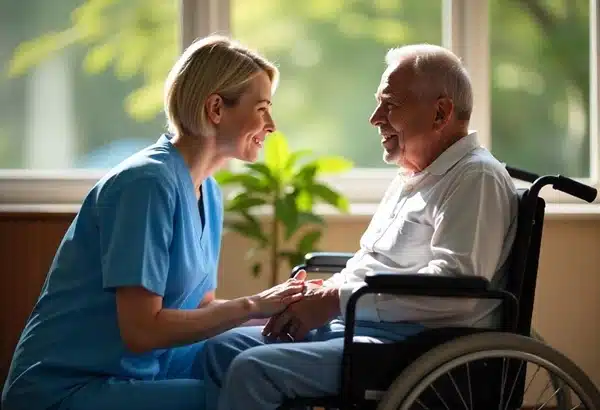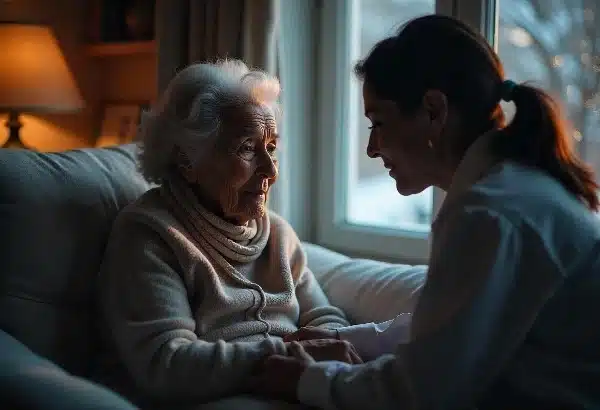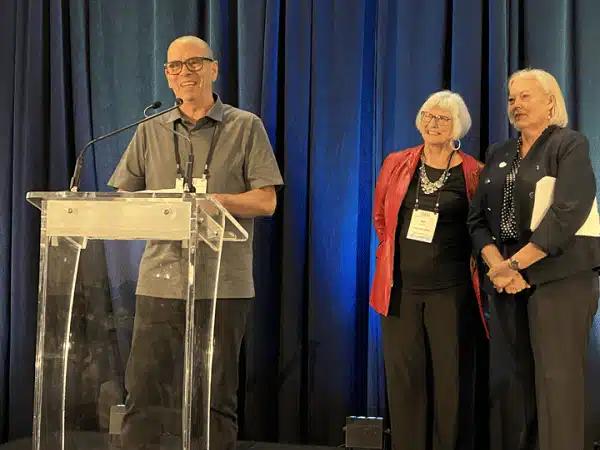In May 2015 I attended the Public Health and Palliative Care conference in Bristol, England. There were approximately 180 people who attended from around the globe.
There were many inspiring and innovative ideas for death education and death literacy, and many messages about compassionate communities providing care for the dying.
I found the following thoughts quite profound:
1. “Do not leave death to the experts.” – Allan Kellehear
2. “Remember that death is a social event with a medical component, not a medical event with a social component. The larger part of dying happens outside of the institution and professional care”. – Allan Kellehear
3. “End of Life Care does not begin with palliative care it begins with community. – Julian Abel
4. “Expand the team to include community as REAL partners, not just targets of care.” – Allan Kellehear
5. “Help people identify their “ring of confidence” including their friends, family and paid resources.”
6. “Put family cares/caregivers in the drivers seat, and find out what they want/need.” – Julia Verne

Improve death literacy
One of the key messages of the Public Health Palliative Care conference was to improve death literacy. Interesting choice of words. What might that mean?
According to dictionary.com literacy can be defined as:
- the quality or state of being literate, especially the ability to read and write.
- possession of education: to question someone’s literacy.
- a person’s knowledge of a particular subject or field: to acquire computer literacy; improving your financial literacy.
To be literate means to be able to read and write, having or showing knowledge of literature, writing, etc. and having knowledge or skill in a specified field. Death literacy, then, may mean to be able to read and write about death, having knowledge of literature and writing about death, and having knowledge or skills related to death. I would suggest that death literacy is not only about being able to read and write about death and know about death, but also to be able to communicate about death.
In an active sense, being able to read or write does not help anyone if they are not willing to do anything with it, so I suggest that death literacy is the willingness to learn and communicate about dying and death. This is definitely a good goal for all of us!
Around the world groups are coming together to help people talk, write, create and understand more about death.
One of the projects I learned about while in England is The GroundSwell Project out of Australia. Their mission is to “develop innovative arts and health programs that create cultural change about death and dying, while championing others to do the same.” They value “creativity and innovation from unexpected places; intergenerational learning and sharing that enriches lives; collaboration and partnership that grows everyone; health promotion and community development for profound change.” Kerrie Noonan and her team are creative, they work outside the box, they are artistic, and they manage to reach a group of people that is not currently reached by hospice palliative care. Have a look at their website or follow them on Facebook and Twitter if you want to see some innovative ways to involve community. They celebrate a “Dying to Know Day” each August. I am thinking that I will find a small project to do in my circle in Victoria BC while they expand their community in Australia. If you want to join them also, get creative.
In previous blogs I have mentioned the “Death Cafe” as a place to meet and explore topics about death. One example of events where people gather to talk about death is sponsored by Hospice Northwest (Ontario, Canada). They have a wonderful event titled “Die-alogues”. Kathy Kortes-Miller, one of Canada’s leading death educators, introduced us to “die-alogues”. She tells the story of thinking that maybe only family or friends would attend, and her surprise when dozens of people turned up! Kathy writes, “Our standing room only events demonstrate that our community wants to engage and be active participants in learning about dying and death and supporting one another. ”
Do not leave death to the experts.
I am intrigued by this statement especially as people without professional degrees comes forward to care for the dying and bereaved. What can we learn from a fresh, “un-academic” perspective? What is the role of those without formal degrees in caring for the dying? How can we learn to stand back and give space for emerging “death doulas” and “death midwives”, etc. to participate? What do we need to learn about this? Can we practice a bit of “professional humility” as we learn to work outside of the “inter professional team”?
Expand the team to include community as REAL partners, not just targets of care.
I was impressed by the Murray Hall Community Trust in Dudley, England. This group formed in the early 90’s to help communities struggling in the area. Their mandate includes health and social care. Funding supports them to address a variety of needs – from child care to palliative and end of life care.
They designed services by listening to local people, and heard what the people wanted. They worked with domicillary care, debt counselling, etc.. They listened to the stories of the people, and helped them to develop solutions . A few years ago they heard Professor Allan Kellehear speak about compassionate communities and they said “This is what we do!” A group of us who attended the conference were fortunate to tour their sites, and hear about their programs and learn from their experience.
“Remember that death is a social event with a medical component, not a medical event with a social component. The larger part of dying happens outside of the institution and professional care.” – Allen Kellehear
As a health care professional, I have thought – too often – that our team was a significant part of the dying person and family’s life.
In reality, most of the person’s living and dying does not include us, and should not include us. Hopefully when we are needed, we are there, and able to help, at pivotal times. During some periods of time, if we do our jobs really well, and if the disease progression is not complex and difficult, then we may not be part of their lives very long or very often.
“End of Life Care does not begin with palliative care it begins with community.” – Jules Verne
In her last weeks my mother kept repeating, ‘It takes a village to raise a child,… it takes a…. to care for the dying.” By the time she died she pulled her thoughts together, “It takes a village to raise a child and it takes a community to care for the dying”. How can we help community to provide care with confidence?
Dr Deb Braithwaite routinely says, “This is not rocket science”. We need to share with community that which we know, and we need to make it simple not complex. And for those times when life and death are complex, we need to provide support and access to services.
Put family cares/caregivers in the driver seat, and find out what they want/need.
Help people identify their “ring of confidence” including their friends, family and paid resources. Family caregivers provide a huge service to those they care for, and they provide a huge service to our country. The financial value of their services, the unpaid hours of caregiving are immeasurable. There is research looking at the needs of the family caregivers. We need to listen and learn and respond.
If you’re interested in seeing some of the concurrent sessions, plenaries and conversations from the conference, have a wander through the Public Health Palliative Care Conference Youtube channel.
Did you attend #PHPC2015? Or do you have thoughts about my highlights from the conference? Feel free to add your links and suggestions to those that are here!









4 Responses
Thank-you for these thoughtful and well articulated ideas. Moving from concept to planned action is the next critical step for those of us in health care who are seeking to improve palliative and end of life care services across our communities. Translating knowledge as action and then sharing the stories of success will make a difference, one life at a time. I appreciate your blog.
Hi Elisabeth
Wonderful to see you last week!
I love your words…. “from concept to planned action” (That was what the meetings were about as we talked about the future of palliative care education in BC.)
Translating knowledge to action.
Sharing stories of success… one life, one death at a time.
Hm… great images.
Elisabeth, in your work on a daily basis, you work to transform research into action. You have worked with the iPANEL research group (see iPANEL.ca) to help bring new knowledge to practice settings.
Do you have success stories that you can share on integrating a palliative approach, especially in rural and remote communities?
Hi Kath – it was great to meet you at the Public Health and Palliative Care conference and I’m glad to hear that you might do a little something for Dying To Know Day on August 8th too. I just wanted to offer a definition for Death Literacy –
What is death literacy?
It’s the practical know-how needed to plan well for end of life. This includes knowledge, skills, and being able to take action. Getting involved in end of life conversations and care is one of the best ways to become death literate.
Looking forward to talking real soon, love the work you do!
Cheers
Kerrie
Hi Kerrie
Thanks for your definition on Death Literacy. I think I will copy that out and play with it for a while. It is an interesting term and you have some good ideas in your definition.
What are you personally going to be doing on August 8th? Your morning of August 8th is when our sun will be setting. I am wondering about doing a “Dying for Dinner” or a “Dying over Dinner” and have a group of people join together who want to chat about topics of interest related to death.
I look forward to our chat via skype in the coming week.
Warm regards,
Kath